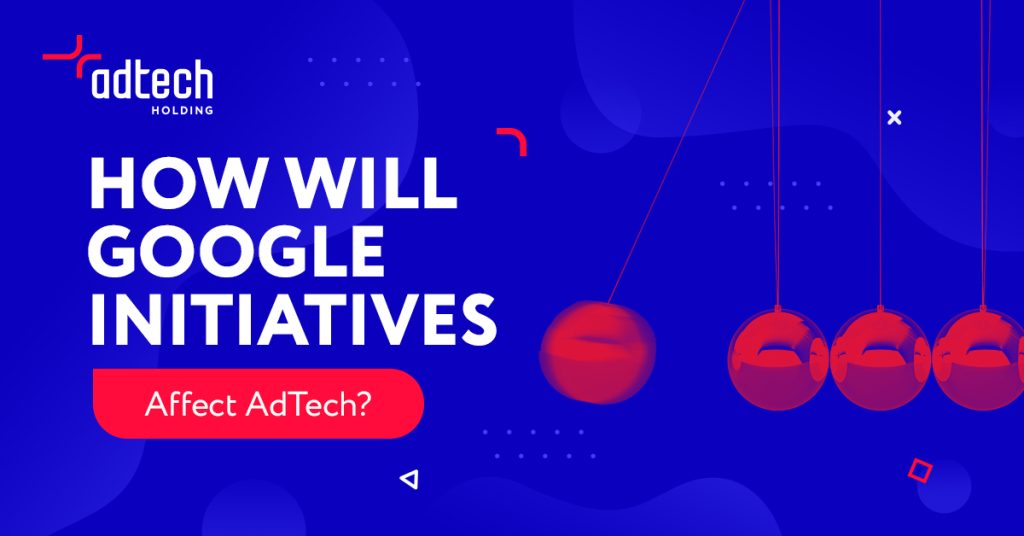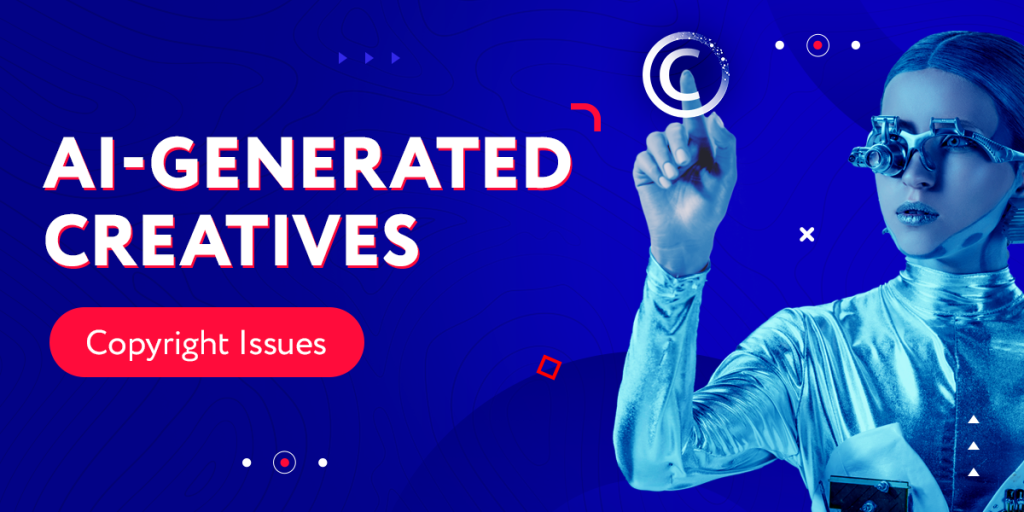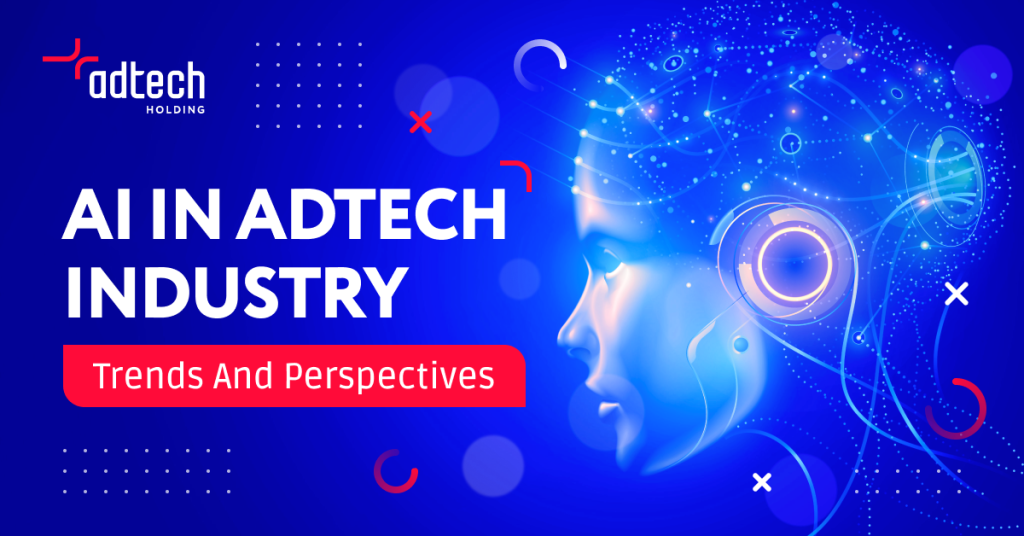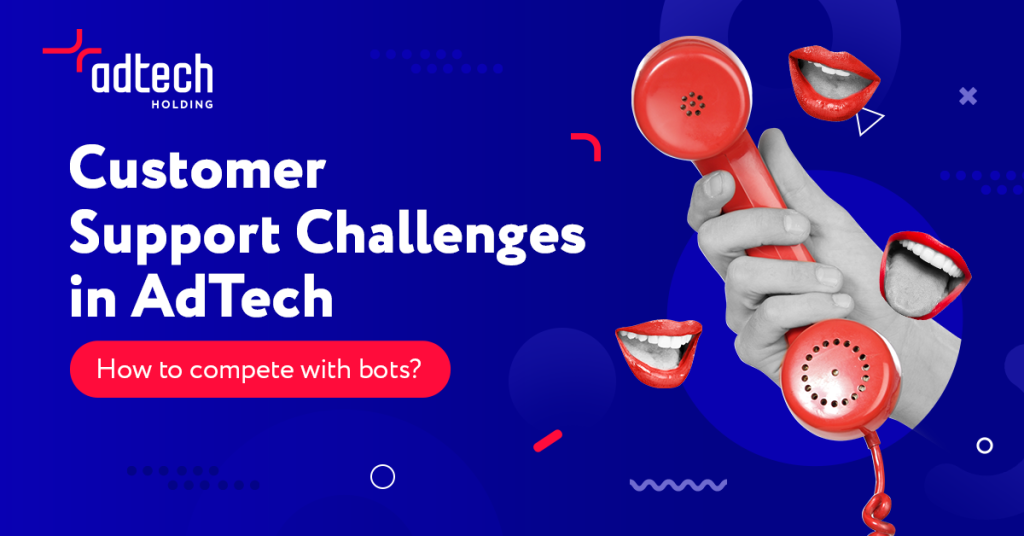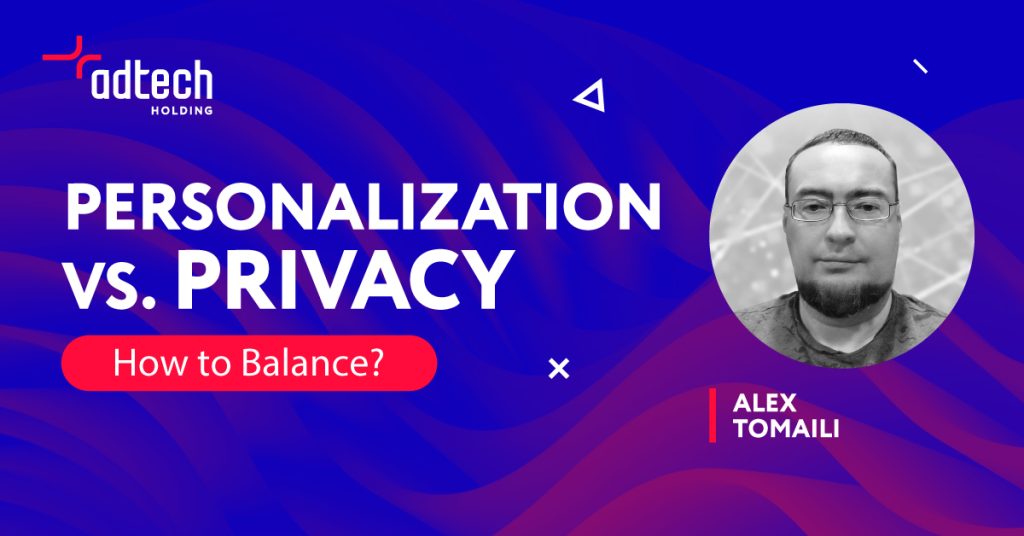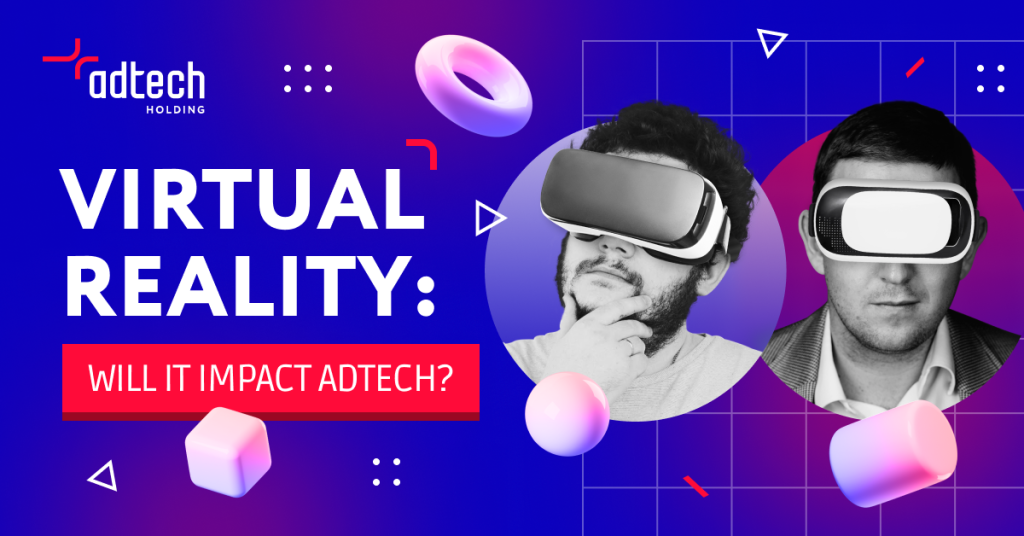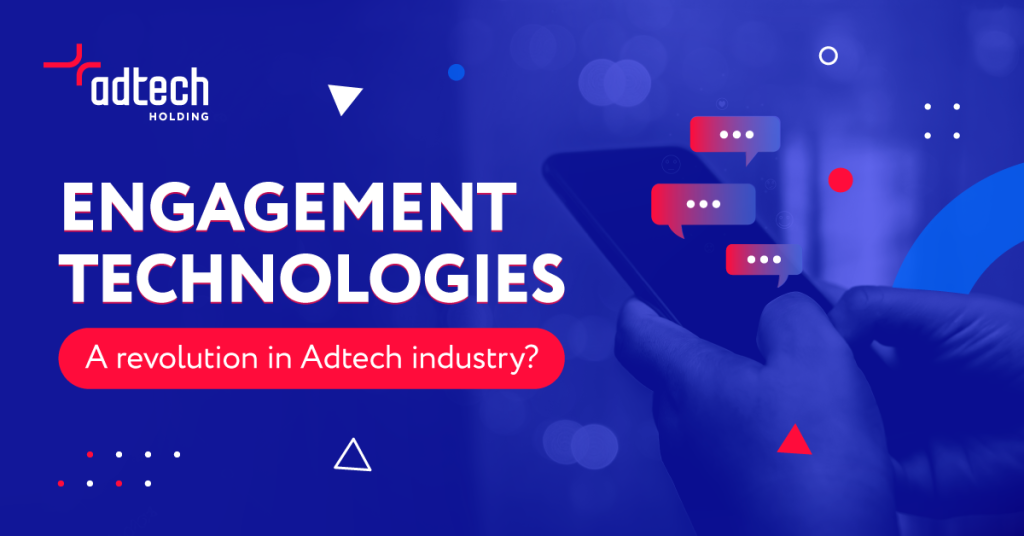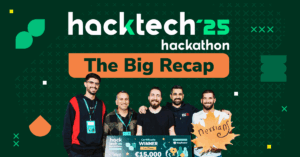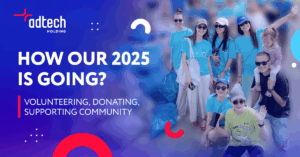5 AdTech Trends in 2024: The Biggest Industry Shifts To Expect
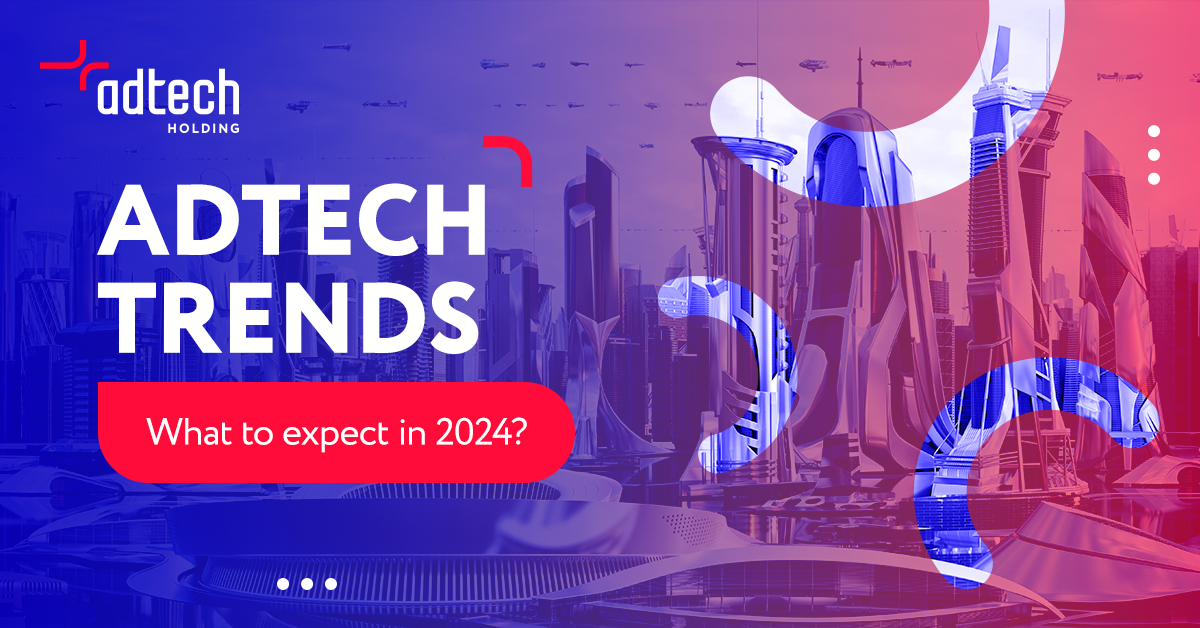
Our traditional annual digest is ready: as usual, we present you with the five most important and impactful AdTech trends. This year, we will highlight the changes that may shape the industry’s future and share various forecasts and opinions from AdTech Holding specialists and Sebastian Lechner — the winner of the ‘How can we improve the AdTech industry?’ challenge of HackAdTech23, our open hackathon.
While such an approach may leave a sense of particular controversy, different visions will provide a broader look at the overall market condition, resulting in plenty of food for thought.
New Retargeting Approaches in The Cookieless World
The ‘cookiepocalypse’ had become a buzzword since 2020, when Google first mentioned its plans to refuse third-party cookies for the sake of the new privacy commitment. Briefly, this automatically means that AdTech companies will have less data that can be used for precise user targeting, balanced frequency capping, and granular enough performance statistics.
The biggest concern lies in the question of retargeting: third-party cookies allow brands to retarget users with the maximum preciseness on their unique ID level. It seems a severe threat to the industry, as there is no straightforward alternative, and the topic is full of contradictions.
According to one of AdTech Holding’s partners, many brands might definitely suffer — and the players in the market who do not have access to first-party data will most likely bear the brunt of the upcoming changes. Alternative solutions to match users with the relevant ads — like fingerprints — might become a rescue. However, not every particular AdTech company will manage to implement the new solutions to work as accurately as third-party cookies do now.
AdTech Holding is one of the companies with no doubts about adapting smoothly to the new era. As Konstantin Kuznetsov, Chief Product Officer, claims,
‘Retargeting will stay but will have an alternative way of user identification. Phasing out third-party cookies is a complicated topic overall, and this is one of the reasons why the cookie ban deadline has been shifted again to the year 2025 from 2024. We at AdTech Holding keep our finger on the pulse and attentively monitor everything related to the topic. And, of course, we are testing various alternative solutions and will surely step up into the new era, forearmed and prepared.
Artificial Intelligence To Rise
Another buzzword of 2023 is ChatGPT and all the other AI tools available for mass audiences. It would be ridiculous to suppose that the rise of AI popularity and its implementation in AdTech and other industries would stop in 2024. The question is, how will the trend develop in digital advertising?
Here are three opinions we got.
Peter Garmashov, Product Director at PropellerAds:
I believe that more ad creatives will be generated — and, in a couple of years, we will see generated video ads or even playable gaming ads. Moreover, we will soon enter the era of the new ad campaign optimization level that implies non-stop automated generating and testing of creatives based on the top-performing ones. We probably might witness such a feature at the biggest ad platforms like Meta or Google — and AdTech Holding’s flagship project, PropellerAds.
“This all implies that AI will replace many simple manual jobs. For example, there is a prototype of a new AI training process when AI is embedded in a user’s computer and tracks everything a user does with the mouse and keyboard. This way, a user can, say, create an advertising campaign, and AI will learn to do the same alongside.“
AdTech Holding Partner:
I wouldn’t claim that AI is widely used by brands right now: for most of them, it’s essential to be aware of every small detail that can affect brand safety and reputation — which requires much human involvement. I believe AI technologies might be popular for generating gaming creatives or eCommerce ads, but they will not become a big help for complicated designer work, at least not in the near future.
Konstantin Kuznetsov:
AI appeared long ago — but the last year showed a real breakthrough in its content generation and data analysis fields. As a big AdTech company, we try to apply new technologies in our projects — like the creative generation in ad campaigns, already mentioned by Peter or data processing. Besides, our colleagues actively use ChatGPT and similar solutions in our routine workflows and software development.
“For me, it is obvious that AI’s potential is not fully unlocked yet — and we are currently at a unique point when the world is changing, and it’s essential to be ahead of this new game.”
Sebastian:
I predict that new AI tools will strongly push the whole industry, especially young companies, to develop new technologies. For example, you can develop a landing page without help from a programmer, so AI generally extends people’s capabilities. In other words, a marketer can now program, and I, as a developer, can probably write a relatively good piece of copy for marketing.
Multiformat Campaigns
Every industry is constantly striving for automation, and AdTech is no exception. One of the new automation trends will touch on the launch of advertising campaigns.
The ad format is basically a way to display content to a user — but not the key of the whole campaign. The primary campaign goal is much more important, and finding the format that will help reach this goal most effectively is the question of history data and testing. This is why multiformat campaigns are going to hit the stage in 2024 and become of the top AdTech trends.
Konstantin Kuznetsov:
I more than support the trend of refusing format choice in favor of setting goals and launching campaigns with the formats relevant to these goals. Moreover, we are actively developing such an approach at our PropellerAds ad platform — so you can expect a simpler, smarter, and more efficient campaign launch in 2024.
iGaming Growth
The forecasts predict that the iGaming industry’s market size will grow to 114.4 billion U.S. dollars by 2028. This is an approximately 86% increase compared to its current state, which implies many perspectives and big revenues in the niche.
As Peter Garmashov says, iGaming will be especially big in LATAM and Africa in 2024 — and has always been a profitable vertical worldwide, as Konstantin Kuznetsov adds. One of our partners supported this opinion —
‘I suppose media buyers must go into the iGaming vertical and learn it as deeply as possible. This trend will barely ever go away and will soon have proven and working advertising schemes.
Web Traffic Monetization Boost
The new API for Google browser extensions, Manifest V3, is one of Google’s privacy initiatives. In the context of ad-blocking extensions, this API will most likely stop their performance, meaning web users cannot hide ads on various pages anymore.
Will this become a big change for AdTech companies? As AdTech Holding’s partner believes, AdBlock’s impact on AdTech was not significant enough to celebrate its ending. Moreover, AdTech Holding’s projects have successfully used anti-AdBlock solutions for years.
Still, brands with plenty of web traffic might expect better monetization results, as AdBlock will not steal even a part of it now.
Konstantin Kuznetsov:
“Globally, the anti-adblock trend has been around for a long time. For example, large websites have begun hiding website content until AdBlock is switched off for ages ago.“
I personally don’t support AdBlock-related solutions: they break the monetization logic. When website owners develop their projects, they input effort and money — and a desire to monetize it later is a healthy and clear goal. Thus, website content can become either paid or free but with engaging and relevant advertising. I bet that most people would pick the second option over paid subscriptions — so ads on a website are a win-win solution. AdBlock extensions ruin this process, so I suppose this is something we can call good news.
Sebastian:
I think that many people like those nerds and hackers will see that as a challenge to find something that helps them not to watch ads. So, I think it will be very hard to make the AdBlock ban happen 100%. I guess most people probably will accept it because they’re not interested in breaking that new system. But I think it’s not the complete end of ad blockers. I don’t think so.
AdTech Trends Summary
It seems that the year 2024 is still full of intricacy. What will finally happen to third-party cookies? How will the trends change in various advertising verticals? Will AI developments show even bigger breakthroughs?
Whatever the future will show us, one thing is definitely clear: it is not time to relax and simply monitor the news. The industry is going through big and complex changes, so brands must stay aware and ready to take action to stay competitive despite any obstacles or challenges.
